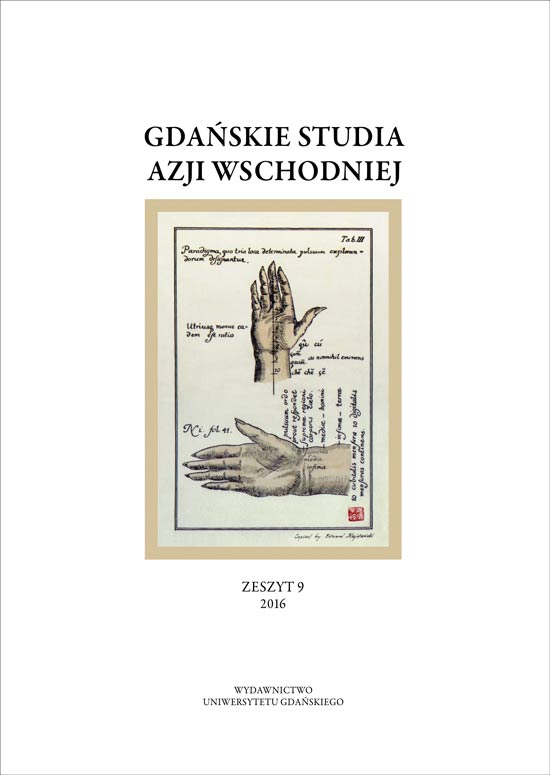Wykonywanie zawodów prawniczych w świetle ustawodawstwa chińskiego
Abstrakt
While analysing provisions concerning legal professions in Mainland China, we can observe that the procedure of obtaining necessary qualifications is really complicated. It requires the approval of judicial administration department (of lower and upper level) and finally, the issuance of lawyer practice’s certificate. The same rules are applicable to the Chinese law firms. However, foreign law firms, which would like to provide legal service within the territory of the People’s Republic of China, need to comply with more restrictive requirements. Moreover, we can notice some changes in the Chinese legislation concerning lawyers’ professionalism and quality of legal service. The Communist Party of China makes some efforts to reduce corruption in the Chinese legal environment. Despite mentioned reforms, China still meets challenges related to the lawyers’ independence.
Downloads
Bibliografia
Judges Law of the People’s Republic of China z dnia 28 lutego 1995 r., ze zm. (dalej: Judges Law), www.npc.gov.cn (dostęp: 28.12.2015).
Public Procurators Law of the People’s Republic of China z dnia 28 lutego 1995 r., ze zm. (dalej: Public Procurators Law), www.npc.gov.cn (dostęp: 28.12.2015).
V. Behr, Development of a New Legal System in the People’s Republic of China,„Louisiana Law Review” 2007, vol. 67, no. 4
W. Li, Philosophical Influences on Contemporary Chinese Law,„Indiana International & Comparative Law Review” 1996, vol. 6, no. 2
E. Pils, China’s Human Rights Lawyers: Advocacy and Resistance,London–New York 2015
Y. Li, The Judicial System and Reform in Post-Mao China: Stumbling Towards Justice,New York 2014
Konstytucja Chińskiej Republiki Ludowej,przeł. Wu Lan, M. Dargas,Gdańsk 2012
E. Kajdański, Chiny. Leksykon,Warszawa 2005
J. Rowiński, W. Jakóbiec, Parlament Chińskiej Republiki Ludowej,Warszawa 2008.
G.J. Clark, An Introduction to the Legal Profession in China in the Year 2008,„Suffolk University Law Review” 2008, vol. 41
The Internationalization of the Practice of Law,red. J. Drolshammer, M. Pfeifer, Hague–London–Boston 2001
K. Gawlikowski, Budowa systemu prawnego w ChRL i przemiany typu państwa w okresie reform [w:] Uniwersalizm praw człowieka a rzeczywistość w krajach kultur pozaeuropejskich,Warszawa 1998
Trial Scheme for Cooperative Law Firms; zob. C. Wang, N. Madson, Inside China’s Legal System,Cambridge 2013
P.B. Potter, China’s Legal System,Cambridge 2014
Y. Chen, A Tale of Two Cities – The Legal Profession in China, „International Bar Association’s Rights Institute” 2013, no. 2
Measures for the Implementation of National Judicial Examination (for Trial Implementation) z dnia 31 października 2001 r., Ministry of Justice, english.moj.gov.cn (dostęp: 3.11.2015).
General Principles of the Civil Law of the People’s Republic of China z dnia 12 kwietnia 1986 r., ze zm., www.npc.gov.cn (dostęp: 28.12.2015).
Criminal Law of the People’s Republic of China z dnia 1 lipca 1979 r., ze zm., www.npc.gov.cn (dostęp: 23.03.2016).
L. Benton, From Socialist Ethics to Legal Ethics: Legal Ethics,Professional Conduct and the Chinese Legal Profession,„Pacific Basin Law Journal” 2011, vol. 28
Y. Li, Professional Ethics of Chinese Judges. A rising issue in the landscape of judicial practice, „China Perspectives” 2003, no. 47
Regulations on Administration of Foreign Law Firms’ Representative Offices in China z dnia 22 grudnia 2001 r., www.npc.gov.cn (dostęp: 28.12.2015).
Law of the People’s Republic of China on Partnerships z dnia 27 sierpnia 2006 r., ze zm., www.npc.gov.cn (dostęp: 28.12.2015).
M.A. Cohen, International Law Firms in China: Market Access and Ethical Risks,„Fordham Law Review” 2012, vol. 80, issue 6

 Uniwersyteckie Czasopisma Naukowe
Uniwersyteckie Czasopisma Naukowe





